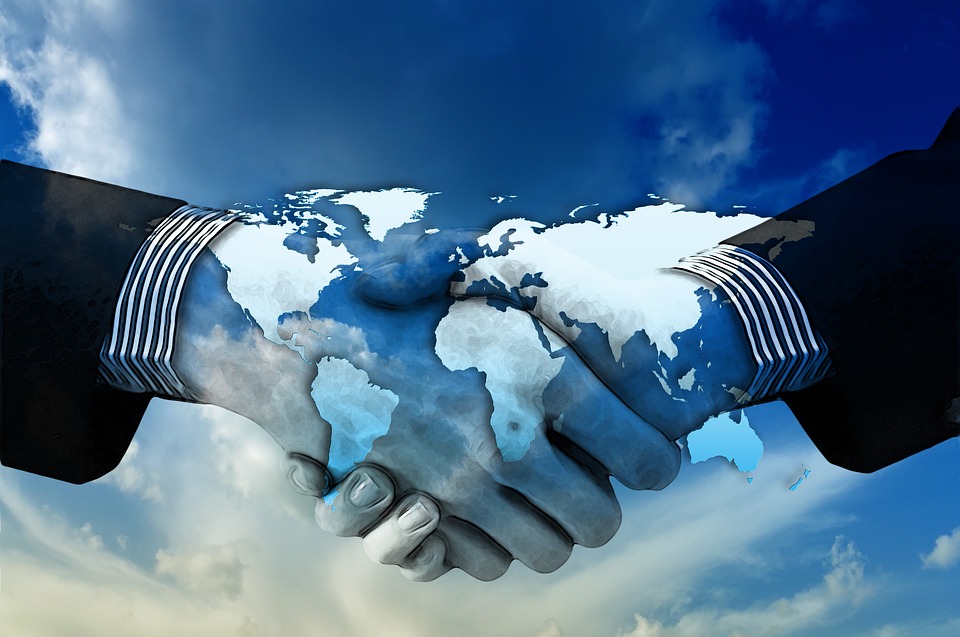Fidelis Bonaventure Uzoma
“War is always a failure. It means we’ve failed in diplomacy and we’ve failed in talking to one another.” –Martin Firrell
World War II marked the global revolution of the 21st century! But after the war, it became absolutely important for world leaders to devise strategies on how best to ascertain global interests, make mutually benefiting policies, adjust to political demands as well as map out appropriate tactic(s) in addressing global problems within the international system. For some reason, diplomats specifically find themselves falling into this category of leaders.
I had the opportunity of attending a summit on Globalization and Good Governance in the fall of August. In the middle of his presentation, one of the speakers posed a question that seemed quite disturbing to the docile audience. He inquired, “What is the best way to get rid of an uncompromising ally state without losing ties with it?” There was a very brief silence. Then a deep voice came from the audience, “The diplomatic way!” There was a quick laughter from crowd. That was on a light note, but given some thought, it weighed some pounds of truth.
Strategically, diplomacy seeks to promote friendship and co-operation among individuals, cultures, groups and nations. More, it engages in activities that encourage peace, international security and sustained development within the global sphere. For a fact, the most diplomatic institution in the world is the United Nations.
Everyone is a diplomat of some sort. Something as simple as being polite and courteous, avoiding human conflicts or settling disputes, carefulness in dealing with others, being considerate, patient and understanding; prudence in thought and tact in speech are all symbolic of one’s innate disposition to diplomacy. But on a professional level, diplomats are skilled in managing international relations.
Professional diplomacy is an art; a method and strategy of conducting negotiation(s) between/among nations in a bid to promote peace, foster cooperation, achieve understanding among other objectives.
HOW DO YOU IDENTIFY A SUCCESSFUL DIPLOMAT?
With my research on the operations of highly effective Diplomats, here are what I consider to be deductible traits of effective diplomats.
1 .GOOD KNOWLEDGE OF HISTORY AND WORLD AFFAIRS
A professional diplomat has a good acumen for world history and possesses a profound insight into the workings of the global system. She/he has a touch on virtually all aspects of the society including religion, culture, politics, etc. With this, S/he is effectively able to interpret the facts bordering on world events. Like the Cosmic Philosopher, the world is the diplomat’s laboratory wherein S/he tests, verifies, analyzes issues of relevance and make sound judgments about their implications in real-time.
2. PRAGMATIC IN NEGOTIATIONS
Although the win-win principle is the goal of negotiation, a diplomat, however, seeks the national interest of the country he represents and pushes for negotiations in line with this requirement. If this is not achieved, he re-directs his strategy until there is a common ground on which both parties can safely land.
3. EXCEPTIONAL IN COMMUNICATION
For the concerned diplomat, the goal of dialogue is the attainment of understanding. When communication is employed fully, a foreign policy within the domestic and international system becomes achievable. In conflict resolution, a diplomat will employ both the dynamics for mediation and the technique of dialogue to commence a peace process. When on mission, a diplomat is efficient in handling the toughest questions with finesse and polish as well as being prudent but CLEAR on specific terms and deals. Even in the delivery of bad news, the diplomat is careful to not evoke bad feelings! He pays attention to the verbal and non-verbal “vibes” and only speaks when necessary.
4. DETAILED AND SEDULOUS
The business of diplomacy demands a high level of meticulousness. Jeff Besoz states that “If you don’t understand the details of your business, you are going to fail”. You’d be successful, if you have an eye for details as a diplomat. As it were, the principle lies in the fact that your “clients” deserve the best service.
So, the merit of being flawless in your dealings is a strong plus both to your country and the country you have business with. With experience, exposure and expeditions, diplomats merely see in clear terms the patterns within the international system.
Finally, some thinkers orate diplomacy is timely and the most effective means to maintaining peace and international security today. Others, like Machiavelli plays it as a deceptive game. To what extent are these assertions true? What are the fundamental I’d shed some light on this in my next post on “diplomatic talks”!
What qualifies a good diplomat as one? Feel free to share your thoughts. Over to you!

Fidelis Bonaventure Uzoma
Founder, Young African Diplomats Network
Fellow, Tony Elumelu Foundation Entrepreneurship Program.
Works in British Council Nigeria
